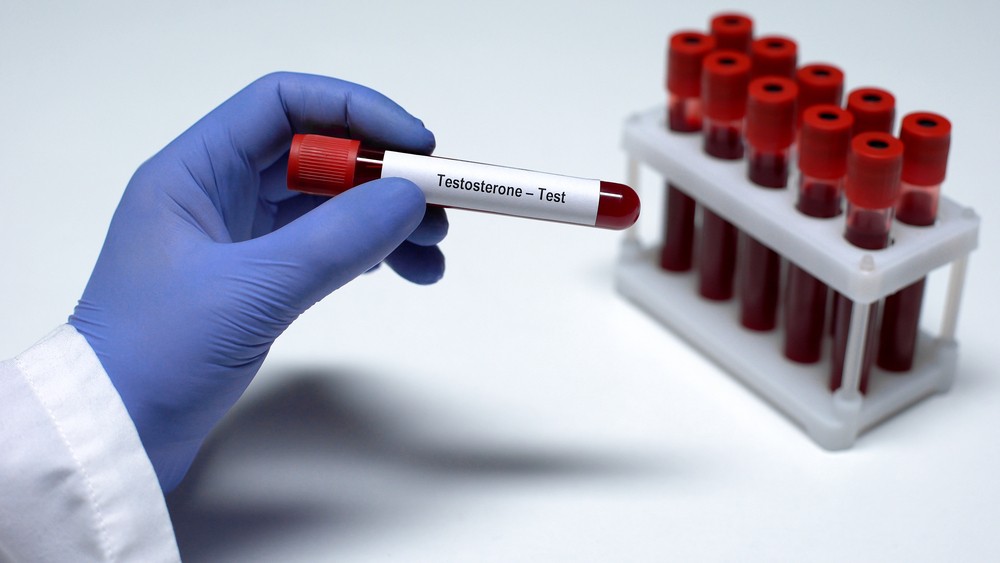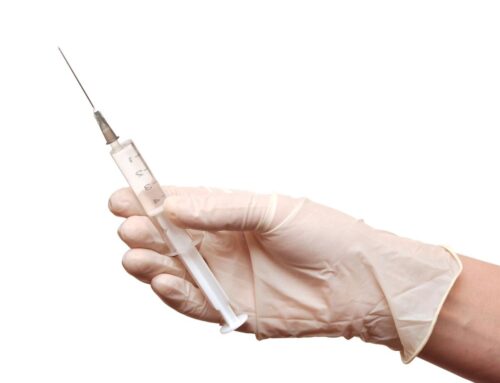Understanding the intricacies of testosterone and its role in our bodies is pivotal. The testosterone test is a powerful tool that tracks the influence of your lifestyle on your hormonal balance. By regularly monitoring your testosterone levels, especially if they fall outside the normal range, you can discern how daily habits and health conditions might be affecting them.
Abnormal testosterone levels can be a sign that certain lifestyle choices or health history factors are impacting your normal testosterone production. This knowledge can guide decisions about potential interventions, including testosterone therapy.
In this article, we delve deeper into the significance of testosterone, the myriad lifestyle elements that can sway its levels, and the advantages of consistent monitoring. Embark on this journey to harness the power of information and champion your health and well-being!
Understanding Testosterone and Its Importance
Grasping the significance of testosterone is pivotal, especially when considering how this hormone influences your body and overall well-being. Testosterone is primarily produced in the testicles in men and, in smaller quantities, in the ovaries and adrenal glands in women. This hormone plays a vital role in numerous physical exam-observable bodily functions. These include the development of male characteristics like facial hair growth, voice deepening, and muscle mass enhancement.
Testosterone also governs sex drive, blood pressure, bone density, mood, and cognitive abilities. Family history can sometimes influence testosterone levels, and its activation process in the body is intricate. Normal measurements of testosterone are crucial for maintaining overall health, as it contributes to energy, cardiovascular health, and mental well-being.
A decline in testosterone can manifest in symptoms like fatigue, reduced libido, depression, and muscle loss. By recognizing the importance of maintaining the right blood level of testosterone, you can ensure the effective treatment of disorders related to it and bolster your overall health.
Lifestyle Factors That Impact Testosterone Levels
To fully grasp the impact of lifestyle on testosterone levels, it is important to consider the various factors that can either enhance or diminish this crucial hormone’s production and balance. Here are some key lifestyle factors that can significantly influence your testosterone levels:
- Diet: Consuming a balanced diet rich in nutrients like zinc, vitamin D, and healthy fats can support optimal testosterone production.
- Exercise: Regular physical activity, particularly resistance training and high-intensity interval training (HIIT), can help boost testosterone levels.
- Sleep: Inadequate sleep or poor sleep quality can negatively affect testosterone levels, so prioritize getting enough restful sleep each night.
- Stress management: Chronic stress can lead to decreased testosterone levels, so finding effective stress management techniques like meditation or deep breathing exercises is crucial.
- Alcohol and substance abuse: Excessive alcohol consumption and drug use can disrupt testosterone production and balance, so it’s important to drink alcohol in moderation and avoid drug misuse.
The Benefits of Monitoring Testosterone Levels
Monitoring your testosterone levels offers a plethora of advantages, especially when gauging the influence of your lifestyle decisions, including the use of supplements. Regular testosterone testing at a reputable laboratory allows you to discern how your daily habits, dietary choices, exercise regimens, and supplements impact your hormone equilibrium. Even in the absence of symptoms, this data equips you to make well-informed modifications to your lifestyle, enhancing your health over time.
Furthermore, keeping a close eye on your testosterone levels can shed light on potential underlying health concerns, such as sexual dysfunction, hormonal discrepancies, or specific medical challenges. It’s also a valuable tool to assess the efficacy of treatments aimed at rectifying low testosterone concentrations.
By maintaining a consistent range for testosterone levels and consulting with your health care provider, you’re empowered to make proactive health decisions and beneficial alterations to your lifestyle.

How to Interpret Testosterone Test Results
By regularly checking your testosterone levels, you can gain valuable insights into how your habits, diet, and exercise routines are impacting your hormone balance and overall health. Understanding the results of your testosterone test is important in order to make informed decisions about your lifestyle choices. Here’s how you can interpret your testosterone test results:
- Total testosterone level: This indicates the overall amount of testosterone in your body.
- Free testosterone level: This shows the amount of testosterone available for use by your body.
- SHBG level: Sex hormone-binding globulin (SHBG) binds to testosterone, affecting its availability.
- Estradiol level: This hormone is derived from testosterone and can impact mood, libido, and bone health.
- DHEA-S level: Dehydroepiandrosterone sulfate (DHEA-S) is a precursor to testosterone and can provide insights into adrenal health.
Implementing Lifestyle Changes for Optimal Hormone Balance
To achieve optimal hormone balance, it’s essential to make adjustments to your diet, exercise routine, and daily habits. Begin by emphasizing a nutrient-rich, balanced diet as a natural testosterone booster. Incorporate foods such as lean proteins, fruits, vegetables, and whole grains into your daily intake. Steer clear of processed foods, sugary treats, and limit alcohol, as these can interfere with amounts of testosterone and other hormones.
Engage in regular exercise, which plays a pivotal role in maintaining normal testosterone levels. Aim for at least 30 minutes of moderate-intensity activities like brisk walking, cycling, or swimming most days, acting as a natural testosterone booster. Furthermore, ensure you’re getting adequate sleep and effectively managing stress, as both sleep deprivation and chronic stress can lead to health issues and disrupt hormone production.
If you suspect medical conditions or have concerns about sperm counts and sexual development, it’s crucial to consult with a health professional. By embracing these lifestyle modifications through diet and exercise, you’re paving the way for optimal hormone balance and enhanced overall health.
Conclusion
Monitoring levels of testosterone is pivotal in discerning the influence of lifestyle decisions on hormonal equilibrium. Regularly testing for testosterone allows individuals to pinpoint any discrepancies and implement requisite lifestyle adjustments to enhance their health. Especially when considering treatments like testosterone therapy, understanding these levels becomes even more vital.
With accurate interpretation of test outcomes, individuals can embark on proactive measures to bolster overall health and sustain optimal hormone concentrations. It’s also essential to recognize the interplay between sexual function, levels of testosterone, and the potential onset of chronic diseases. Ultimately, knowledge remains a potent tool in the vigilant monitoring and management of testosterone levels.





